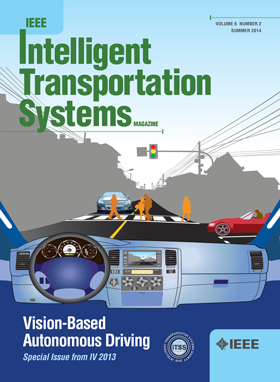Multimodal Transport Scheme Optimization and Capacity Allocation Considering Customer Classification
IF 7.9
1区 工程技术
Q1 ENGINEERING, CIVIL
IEEE Transactions on Intelligent Transportation Systems
Pub Date : 2025-01-29
DOI:10.1109/TITS.2025.3528406
引用次数: 0
Abstract
Although multimodal transport has been widely developed, the multimodal transport operation system is still not as mature as other single modes of transport. Currently, the optimization of multimodal transport solutions and the allocation of capacity are planned as two separate parts, and the research on customer classification of multimodal transport is insufficient. The current bottleneck in multimodal transportation systems is optimizing multimodal customer classification and transportation solutions. Additionally, such an optimization can significantly improve the system’s overall revenue. Based on the customer classification theory of revenue management, we classified and managed multimodal transport customers and allocated and priced the transportation capacity according to the demand characteristics and price sensitivities of different customers. Furthermore, we considered the impact of transportation scheme planning on the profit of multimodal transport. Accordingly, we developed a joint optimization model for multimodal transport schemes, capacity allocation, and pricing by considering the customer classification. We solved the model using a hybrid particle swarm algorithm and validated it using arithmetic examples. The results indicate that a customer classification strategy can significantly improve the profit of multimodal transport operators when customer demand is unstable, and the total profit of the transportation system is increased by 7%. Moreover, these results suggest combining transportation solution optimization with customer classification can lead to more profitable multimodal revenue management solutions. Thus, our results can guide multimodal operators for systematically dealing with the customer classification problem and optimizing transportation schemes while improving their profits. Moreover, this study offers a reference for decision-making in multimodal operation management.求助全文
约1分钟内获得全文
求助全文
来源期刊

IEEE Transactions on Intelligent Transportation Systems
工程技术-工程:电子与电气
CiteScore
14.80
自引率
12.90%
发文量
1872
审稿时长
7.5 months
期刊介绍:
The theoretical, experimental and operational aspects of electrical and electronics engineering and information technologies as applied to Intelligent Transportation Systems (ITS). Intelligent Transportation Systems are defined as those systems utilizing synergistic technologies and systems engineering concepts to develop and improve transportation systems of all kinds. The scope of this interdisciplinary activity includes the promotion, consolidation and coordination of ITS technical activities among IEEE entities, and providing a focus for cooperative activities, both internally and externally.
 求助内容:
求助内容: 应助结果提醒方式:
应助结果提醒方式:


